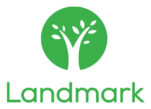One of the practical challenges to successfully implementing home-based care models is the responsibility these models can place on unpaid caregivers. To address this issue, Health Evolution Fellows in our Roundtable on Integrated Home-Based Care Models recently invited guest speakers and experts Alexandra Drane, CEO and Co-founder of ARCHANGELS, Randy Klein, CEO of Vesta Health, and Tia Newcomer, CEO of CaringBridge, to discuss the problem and identify practical solutions organizations can put in place to better support unpaid caregivers—which in turn can enable higher-quality home-based care.
Throughout the conversation, Roundtable Fellows and our speakers identified three key features of providing robust support to unpaid caregivers:
1. Resource building and mapping
While there has been significant growth in resources to support caregivers, organizations now need to think about how they organize and deploy those resources to effectively meet caregivers’ needs.
Klein advised organizations to map the support resources they offer unpaid caregivers to the outcomes the organizations want to achieve. That may require organizations to take a closer look at their partners, networks, and contracts to ensure the resources and support offered to caregivers aligns with the organizations’ goals. Additionally, organizations should consider whether they and their partners are providing the appropriate incentives to encourage caregivers to use the resources in ways that align with the organizations’ goals.
“We want to engage caregivers. We want to support caregivers, create better outcomes for caregivers, and create better outcomes for the folks who they’re caring for. So we should organize resources around those goals,” Klein explained.
Ideally, organizations should strive to build ecosystems that “are so lush with caregiver support, that caregivers can’t help but use them,” Drane said. She noted those assets may include a robust system of community-based, government-led, and employer-sponsored resources for unpaid caregivers that can range from services such as telehealth and mental and behavioral health care to paid home-based care aids. Organizations also should label resources clearly as “caregiver support” so unpaid caregivers are aware of them, Drane added.
Outside of the resources organizations can provide themselves, Newcomer noted that organizations shouldn’t overlook a caregiver’s personal community as a key system for support, and organizations should encourage caregivers to “activate” that community. Prompting caregivers to talk about their experience and share their needs with their families, friends, neighbors, and other communities can enable those groups to help, Newcomer said.
2. Engaging unpaid caregivers in their role
Once an organization has resources in place to support unpaid caregivers, getting people to recognize and engage in their role as an unpaid caregiver is crucial to providing the help they need.
Drane noted that although research suggests 43% of U.S. adults are serving as unpaid caregivers, the actual percentage of unpaid caregivers in the country likely is much higher. That’s because people serving as unpaid caregivers often don’t recognize they’ve taken on that role, Drane explained.
But it’s important that unpaid caregivers recognize their role because they are a vital part of a patient’s care team. Unpaid caregivers often “hold a position of great trust, and they have a tremendous ability to both observe and intervene” in a patient’s health, Klein said. Helping people acknowledge and accept their role as an unpaid caregiver can enable organizations to provide the support caregivers need to effectively manage patients’ care.
“People need to have that ‘Aha! Moment,’ and recognize that what they’re doing is spectacular. Organizations need to not just destigmatize and normalize the role of unpaid caregivers, but they need to celebrate people in these roles, as well,” Drane said.
Klein added that it’s important organizations treat unpaid caregivers with inclusion and respect. “They want to be treated as knowledgeable, caring individuals who have the ability to be useful, and they want their concerns attended to. And when you engage with caregivers in that manner, what we see is that you get better results,” Klein said.
Newcomer noted that it can be helpful to engage unpaid caregivers in one-on-one conversations while the patient isn’t present. This allows caregivers to “feel seen,” she said.
3. Assessing caregivers’ needs and navigating them to vetted support
Once organizations have engaged caregivers in their role, they should ask caregivers about their unique pain points and stressors. To do so, organizations should encourage unpaid caregivers to “capture” and share their journeys, Newcomer said. “It can help improve that feeling of emotional health and social support,” she explained.
Organizations then should navigate unpaid caregivers to the support services and resources that best match their needs, which is crucial since caregivers often don’t have time to track down support resources themselves. For example, Newcomer said organizations can provide caregivers with digital education and support tools they can use “on their own time,” which can be easier for unpaid caregivers to manage given they often grapple with hectic schedules. “If they’re up at 1:00 a.m. for whatever reason, because we all are, then okay, that’s the time they have to do something. So educational tools on their own time is really important,” she said.
In addition, organizations can provide caregivers with direct, hands-on navigation to vetted resources.
“The best thing for caregivers is to be able to pick up the phone and have someone who knows what’s available to and covered for them,” Drane said. “It’s so important we don’t give unpaid caregivers a to-do list. They are so overwhelmed. So when there’s a plethora of resources available,” organizations can help caregivers by navigating “them to the top two things they can do right now that will most decrease the intensity they’re experiencing,” Drane said.
But organizations also need to be mindful to avoid “hit and run” check ins with unpaid caregivers—meaning organizations shouldn’t ask caregivers what resources they need if they don’t have a “vetted” way to get them support, Drane said. Organizations must ensure that unpaid caregivers who reach out for support “actually get stuff that does support them in some way,” she added.
Klein agreed and added that bad help can be worse than no help. He said organizations need to ensure that support services and home-care aides are equipped with the information they need to truly make a difference and understand how to achieve the outcomes caregivers and patients need.
Learn more about Health Evolution’s Roundtable on Integrated Home-Based Care Models
Health Evolution would like to thank members of our Roundtable on Integrated Home-Based Care Models for contributing to this work. Health Evolution also would like to thank AmeriHealthCaritas, Amwell, DexCare, Landmark, Tomorrow Health, WellBe Senior Medical, WellSky, and Ziegler for their partnership in supporting this work.
Health Care executives in our Roundtable on Integrated Home-Based Care Models work together to improve the connectivity between specialized models and primary care in the home for patients with variable needs and acuities. Executives in the Roundtable are determining the future of home-based care models for acute care, chronic disease management, and longitudinal care delivery. You can learn more about this Roundtable here and apply to participate here.

![]()



![]()
![]()
![]()










